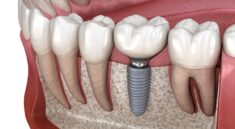Oral health is a lifetime adventure, and the care that your gums and teeth require might alter dramatically as you progress through life. Your dental requirements change as you age, from infancy to maturity to retirement. Consult a dentist in Myers Park, Charlotte, NC, for a more detailed approach to dental health at various phases of life.
Ages 0-12
Focusing on childhood dental health is critical for laying the groundwork for a lifetime of healthy teeth and gums. Begin early. Start dental care with a clean towel on your baby’s gums and progress to a soft toothbrush as soon as the first tooth develops.
Teach good brushing techniques. Encourage good brushing habits as soon as your child can hold a toothbrush. Use fluoride toothpaste and monitor brushing until they can do it properly. Sugary foods should be limited. Sugar intake may be reduced by providing healthful snacks and minimizing sugary indulgences. Encourage the use of water as the major beverage.
Ages 13-19
Teenagers have special oral health needs. Brushing and flossing should become lifelong companions. Brush your teeth at least twice a day using fluoride toothpaste to keep your dazzling whites gleaming bright. Also, floss every day to eliminate any food particles that have become caught between your teeth.
It is no secret that teenagers enjoy sugary food and beverages. While indulging occasionally is OK, aim to restrict your intake of sweets and instead go for healthier options such as fruits and vegetables. Regular dental appointments are essential during this time of life. Your dentist can assist you in monitoring any orthodontic issues or the growth of wisdom teeth. So, make time for those dental check-ups, among all the other things on your hectic calendar.
Ages 20-64
Adult oral care is about prevention and maintenance. Maintain regular dental check-ups and cleanings to detect and address problems early. Consider dental sealants, fluoride treatments, and mouthguards if your dentist recommends them. Maintain regular oral hygiene routines, such as daily flossing and brushing, and restrict your use of alcohol and tobacco.
Ages 65+
In the older years, oral health becomes even more important. Dry mouth is more common in older persons, raising the risk of tooth decay. Maintain hydration and, if necessary, utilize saliva replacements.
Keep an eye out for symptoms of gum disease (gingivitis or periodontitis). Regular dental appointments are still essential. Some drugs might have an impact on oral health. Consult your dentist about any potential side effects. Regular check-ups are crucial because the risk of oral cancer grows with age.
Remember that consistent oral hygiene routines and frequent dental check-ups are the foundations of a healthy smile, regardless of age. Adapting your dental care regimen to the demands of your age group will help you keep strong teeth and gums throughout your life.

